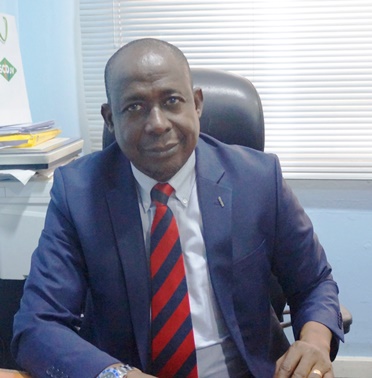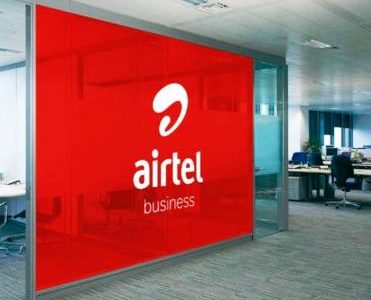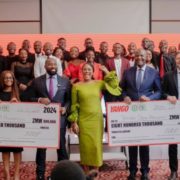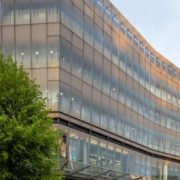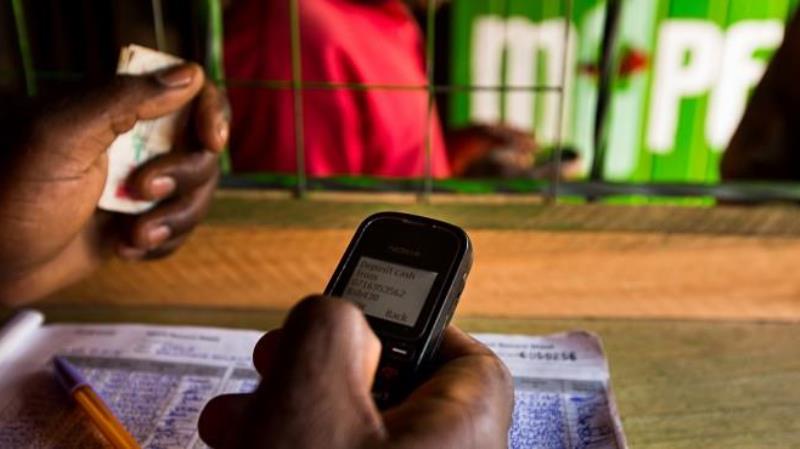Patrick Ede, director at PPC Limited, says heightened insecurity, power instability, political tensions and poor broadband penetration all connived to make 2019 a hectic year for many businesses including tech companies. 2020 offers some hopes but government must make the environment more secure for people and investments. Also, government must up the game to deepen broadband penetration. He shares his views in Lagos with IT Edge News, Nwakaego Alajemba and Clara Aghasili-Lingo.
We are looking at broadband penetration, many countries are currently signing on to 5G network but Nigeria is yet to utilize 4G, is Nigeria ready for full broadband advancement?
There is quite a lot of discussion going on with the current minister and others. We want to do something but structurally the fibre we have on ground is destroyed on a daily basis. It has not been protected. We have a protection issue. People dig up the cable and damage them in the process. The fibre networks and right of way are not standardised; as a result, when construction is going on the fibre network in that area gets disturbed. We need to let those doing the construction work to know that they have to bury conduit so that the fibre network is protected and also improved subsequently. But everywhere you see a construction company excavating fibre cable daily when they are working, you’ll see them dragging it and packing them at a corner and it is not just the fibre of one company but all the networks. This affects their performance.
Nigeria still needs to do more. Broadband penetration in Nigeria is very low, below 35% which is in the urban areas. Now if you talk about the sub-urban region, we don’t even have fibre in a lot of areas, talk-less of the rural areas. Telecom communication penetration is not in some villages today. Building up the infrastructure across the country requires a lot of money. That’s where we need the government to help change a lot of things. With the adequate application of technology we can drive Nigeria forward. If we have a good ICT platform and good electricity supply then the remaining would follow.
Broadband drives development
Nowadays, we talk about e-government, we cannot obtain that without steady internet. If it’s just government to government, it is fine but what about government to citizens and government to enterprise? We need to strengthen our government to government (G2G), government to enterprise (G2E) and government to citizens (G2C) channels. When the structure is well and all done, we have e-government in full, network in full, broadband in full, then taxation can be easy, capturing of data, registrations of things like national identification and others would be easier (without travelling from one place to another). With the launch of a full e-government, the citizens are able to request and register from the comfort of the smart devices, paying for their taxes and e-government services. This works against touts that pester citizens for payment and pocket the money. This would help reduce corruption in the country and the money goes to the agency in-charge and accountability will become easier and there will be transparency because you are seeing the fund coming in and the payment going out. When government spends money it will be posted for proper accountability and transparency. Though this will not eliminate corruption but it can minimize it and government will start getting result. It also helps create a means for people to get value for their money when they start paying for exactly what they use like the case of prepaid metre, spending for what they use and not estimated billing, an effective G2C structure. The only thing the government needs to do is to check if your devices are working properly and billing accurately. All from the comfort of your home and shops irrespective of the time, you will see the value for your cost without stress.
With a fully internet penetration and effective G2C, even those in the rural region can still sell their goods directly to consumers in the urban areas from the e-platforms and consumers have a choice of preference of who and where they are buying from.
“Government has to drive security with seriousness, there is no need politicizing it, security is for everybody including the politicians themselves. If you look at the Nigerian chart on security we have very few green areas. So how do we create employment in an insecure place with so much banditry?
AI will drive efficiency
Today, people talk about AI (Artificial Intelligence). What is AI? I watched a presentation on Artificial Intelligences by a 13 year old Indian young lad. A smart lad, he said that AI is primitive because it has been in existence since the creation of the computer and all that technology does is to improve it. But even with advance technology embedded in AI to manage a lot of work, people won’t be out of job because they are replaced by machines, no, people would still do the job but the speed at which problems would be solved would increase, resolution of issues will be fast and so would efficiency as you can achieve more with machine than manually. AI would be a helpmate to assist with work using technology, more deliveries will become faster and efficiently. In another dimension, AI availability will create more jobs as more services will be required. So AI is not to take away your job but to improve your speed of work and efficiencies. So AI is here already but the broadband infrastructure to drive it is lacking. How can we have AI in a country where broadband is lacking? 5G is not possible at this stage where we’re struggling to fully utilize 4G. AI requires fast speed internet for efficiency and if you don’t have the infrastructure that supports that speed you can’t achieve the efficiency of the service which AI will offer. AI evolves so we need to tune our mindset to embrace AI and the possibilities it brings so we can be ready. 5G is not a mystery but the service that allow efficiency of speed.
With 5G, the interconnectivity of networks on the internet runs faster and service that boost security like smarthome can run far smoother, you can talk of IoT – internet of things- where everything is done on the internet, speed of downloads increased, 3D enabled with your system you can view 3D work as if its live and do other things. Though you can do all these with 3G and 4G, but you can imagine what will happen with 5G.
What is your assessment of Nigeria’s economic performance for 2019 and its impact on businesses?
Year 2019 was challenging. A lot of people said that the economy was hard. It was an election year for Nigeria so people were reporting on what they saw. In the business climate there was lack of understanding of what could happen before and after the election. There were a lot of challenges in predicting the economic curve from year 2018 to 2019, so it was difficult to say who would win and would they continue the current economic efforts or are they coming in with a new one. So yes, a lot of citizens rolled back their plans for the year and after the election was when people started planning for the year. Businesses are hopeful that by 2020 things would pick up proper, so they started developing their plans for 2020. Some businesses are relying on the budget; they don’t know what the budget would look like, like what jobs the government is going to look at so it makes it difficult for them to plan. But we have to plan and be hopeful that 2020 will be better and will have stability.
Security is another major challenge for the whole country and businesses because the cost of security in some regions/states was so high that it frightens investors and businesses. So yeah, people stayed in places relatively safe. Issues like kidnapping, robbery and vandalism were at all time high in some areas. There are areas you can’t go to, there are things you can’t do in some areas. So you consider the security cost, the cost of going there and setting up business is too expensive so people concentrate their businesses in areas that have relative peace and security. You consider the cost of securing the people who will work there, securing the people who will deliver the service and securing the products. So there is danger everywhere. This hindered a lot of plans but the government is working to reduce the security threats. Even telecom sector face the same issues when planning in increase telecom penetration and broadband penetration. With plans to put fibre cable from southern regions to the northern region, security is an issue. You consider if the installed fiber would be safe, and would the team working on the site be safe? So how much investment we are going to bring in 2020 depends on how secured the country is. If our environment is not secured, people would not invest in the environment.
Government has to drive security with seriousness, there is no need politicizing it, security is for everybody including the politicians themselves. If you look at the Nigerian chart on security we have very few green areas. So how do we create employment in an insecure place with so much banditry?Banditry should be destroyed completely. Nigeria has serious potentials, apart from the security chart, if you look at what is obtainable in Nigeria they will tell you how great the country is, big market for everything. Nigeria has a large market for ICT, power and food, etc. Nigeria still remains in the top 10 countries with the largest population in the world and investors are looking at how much they can make in a month or year but once they hear security would be an issue a lot of them back out.
In light of the challenges, how can you assess the PPC performance for 2019?
We set out some goals for our ICT and medical division at the beginning of the year with e-government being our forefront activity. We are already in Bayelsa State signing off World Bank assisted e-government for the whole state which we completed before the end of the year. We are starting support stage this year. So they will have functional e-government running. All the ministries, departments and agencies (MDAs) in the state would be integrated into the e-government platform to have a full functioning G2G and the next stage would be government to local government then to citizens.
The next is to add on national biometrics for proper integration of the e-government. Once properly done, civil servants and citizens of states would be able to just work in with their files, do their capture and be cleared to receive their salary. This way the case of people not going to work all year and still collect salary would be eliminated. This will create transparency at work place and create more revenue for the state as every revenue must be accounted for and corruption will be minimized. Bayelsa has datacenter and main center and all the MDAs are connected to fiber and microwave centers. We are switching on the telephone networks, there you will see the use of solar to call centers, everything you have to do with ICT is working. Next is expansion, we extend them to different terminals i.e, add-on to the system for different payments and request, like: tax payment, National ID request and electrical payments, etc. we are providing the services with even the minimum connectivity technology.
So in PPC we are focusing more on e-government. We have some AI experts on ground to look at how we can improve efficiency without depending on 5G connectivity. We have e-governance infrastructure and the services. When we fully implement the infrastructure you can now have an e-government system. We are doing a lot to drive e-government but that doesn’t take away other activities we are trying to do on ICT, equipment sales and supports, etc. On e-governance, we do implementation of tele-control, automation, dissemination. Government has to have benefit of electronics, they have to ride on electronics for efficiency, they have to leverage on the benefits of broadband and IoT. The way the world has evolved, in future if you are not e-governance compliant you may not receive any grant from institutions like World Bank, IMF, etc because they would want to know what you are doing with the grant, they will want to monitor it. E-governance gives you the opportunity to account for things since everything is captured.
“AI is here already but the broadband infrastructure to drive it is lacking. How can we have AI in a country where broadband is lacking, 5G is not possible at this stage where we’re struggling to fully utilize 4G”
What is your main focus on the health sector and what unique ehealth solution have you introduced to Nigeria health market lately?
In our medical division, we are creating some diagnostic centres and support medical screening to support patient’s records and improved healthcare. Our medical division is very active, we have alignment with some medical institutions and we help government create medical diagnostic centres. We do mainly medical supplies, turnkeys of end to end, that is, from construction of the building and equipping the diagnostic centres to make sure they are up to standard. We also provide software to the medical centre. So all data are digitized from daily upload to make sure patients’ data are easily accessible by the registered centre to provide better care to patients. Nowadays, medical service now is digitalized, after visiting your doctors you can get your report and prescription online. eHealth is an ICT portion. We created a support team for e-health, our support teams are also at Bola Tinubu (BT) diagnostic center.
What are the expectations this 2020 for PPC?
We aim to drive further what we are doing now. To extend all we are doing in Bayelsa State to the rest of the country in an affordable manner. So we will do more on e-government, equipment sales, and medical supplies. Look for more partners, we already have nice products, we would get more products on board with guaranty. We are currently looking for how to enter the power sector to make radical improvements in distribution for the country. We aim to train specialist in e-health to create the support we need.

